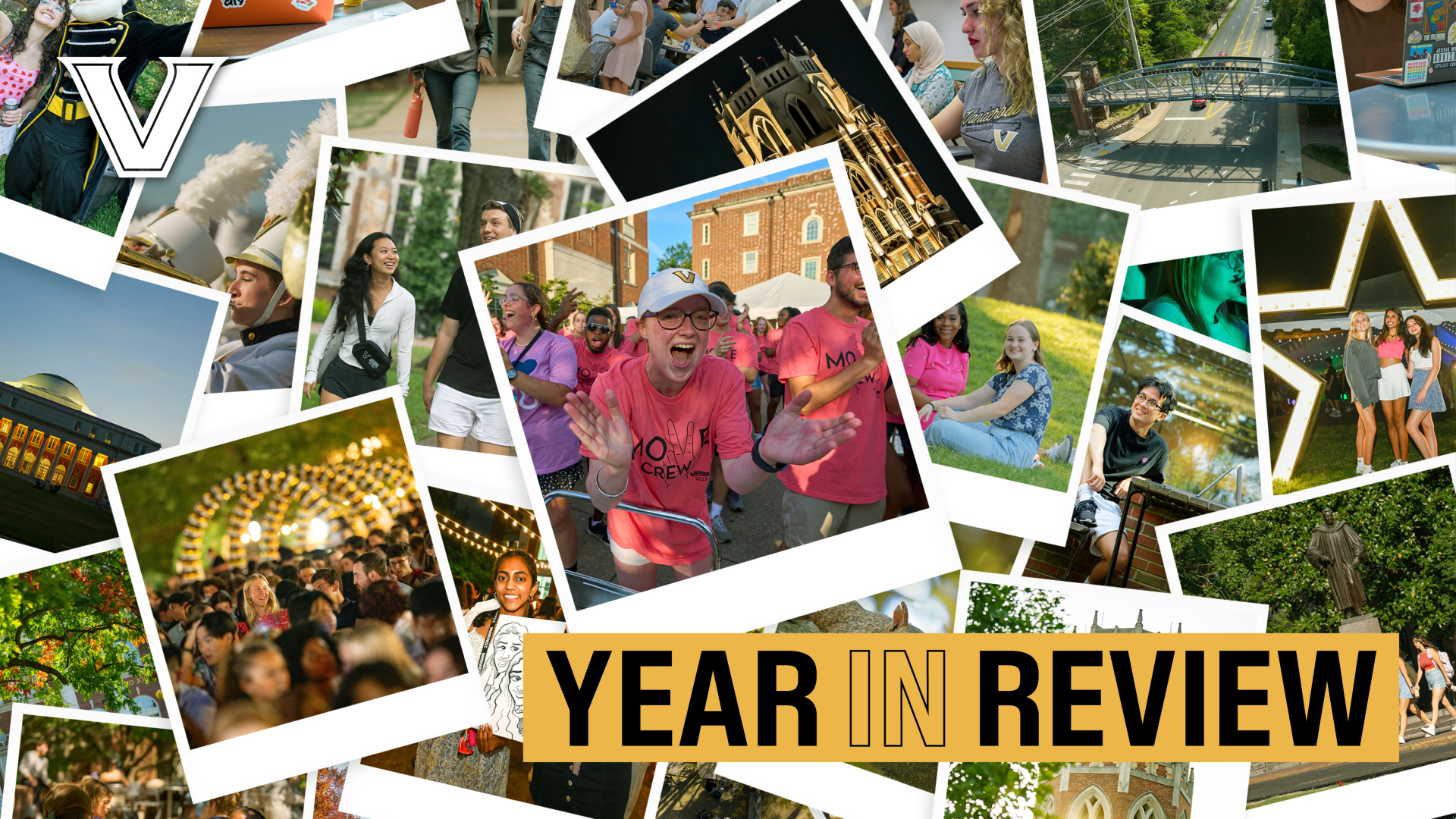From figuring out how AI can help train emergency dispatchers to recognizing the historical contribution of a Nashville neighborhood established by Black Civil War veterans, nine community-driven proposals will come to fruition through the inaugural round of Community Engagement Collaboration grants, awarded by the Vanderbilt Division of Government and Community Relations.
The program, aimed at fostering radical collaboration among Vanderbilt faculty and staff and the Nashville community, supports innovative projects developed through partnerships to address local needs. The long-term goal of the program is to develop sustained efforts and relationships that benefit all involved, as well as the wider region.
“This initiative brings together the expertise of Nashville’s local leaders with the talent and resources of Vanderbilt University,” said Kathleen Fuchs Hritz, senior director of community relations at Vanderbilt. “Our goal is to elevate projects that not only excel in artistic and educational quality but also enrich and empower our shared community.”
Campus awardees represent six schools, 11 departments and five centers/areas. Community partners include local and state public sector partners and nonprofit organizations ranging from new American-serving organizations to cultural and historical organizations. Funding will support collaborative arts projects, documentary creation, AI-process prototyping and community-engaged events.
Spring 2024 awardees and their proposals:
“Community Scholarship Program for the Southern Library Support Staff Conference”
- This project creates a scholarship program to help support library staff across the state attend the Southern Library Support Staff Conference in May 2024, so they can participate in essential continuing education, networking and skill-building opportunities.
- Collaborators: Machelle Keen, user services and facilities coordinator, Sarah Shannon Stevenson Science and Engineering Library, Jean and Alexander Heard Libraries; Robert “Brandon” Hulette, lecturer, human and organizational development, Peabody College of education and human development; Lauri Thompson, continuing education coordinator, Tennessee State Library and Archives.
“Convening on Black Education”
- Convening on Black Education will be a conference to identify promising approaches and opportunities for undoing anti-Black racial harm, while confronting the failure of many school systems to meet the intellectual and social-emotional needs of Black youth and young adults. The public conference is March 28, 3–7 p.m. at the Faye and Joe Wyatt Center.
- Collaborators: Chezare Warren, associate professor of equity and inclusion in education policy, Peabody College; Marcy Singer-Gabella, professor of the practice of education and faculty director of Nashville Partnership for Educational Equity Research, Peabody College; Jerome Moore, founder and chief executive officer, Community Changers.
“Crafts, Community and Caregivers: Supporting the American Cancer Society’s Hope Lodge”
- This program will provide support for patients and caregivers staying at the American Cancer Society’s Nashville Hope Lodge through crafting workshops and discussions on well-being practices and caregiver support. Caregivers can learn new strategies, reflect on their strengths and challenges and talk with other caregivers.
- Collaborators: Jill Stratton, assistant provost for community engagement and academic support, Office of Undergraduate Education; Alexandra Sargent Capps, assistant professor of the practice and director, Department of Theatre and Wond’ry Center for Innovation Fiber Arts Build Lab; Audrey Williams, director of development for the southeast region of the American Cancer Society, American Cancer Society Hope Lodge.
“Developing AI-Powered Systems for Dispatcher Training in Emergency Communication”
- The project brings together a team to design the first AI-powered systems for training emergency dispatchers. These systems will improve dispatcher training and enhance communication skills.
- Collaborators: Meiyi Ma, assistant professor of computer science, Department of Computer Science; Daniel Levin, professor of psychology and human development, Arts and Science; Stephen Martini, director, Metro Nashville Department of Emergency Communication.
“Geophysical Investigation and Geospatial Storytelling of the William Edmondson Homesite”
- The project will survey the William Edmondson homesite to create an educational digital map for the public and to provide community engagement programming.
- Collaborators: Natalie Robbins, program manager of Vanderbilt Institute for Spatial Research, Arts and Science; Victoria Hensley, Mellon Assistant Professor of American Studies, Arts and Science; Mark Schlicher, vice president and founding board member, Friends of William Edmondson Homesite & Gardens.
“Nashville Refuge”
- Nashville Refuge is a web-based public humanities project that helps refugees living in Nashville share their stories with the public. The project consists of a mobile-friendly website that combines video, text, historical imagery and interactive Geographic Information Systems apps.
- Collaborators: Jonathan Rattner, associate professor of cinema and media arts and art, Department of Cinema and Media Arts; Stacy Curry-Johnson, librarian for geospatial data and systems research and learning, Jean and Alexander Heard Libraries; Max Rykov, director of development and communications, Nashville International Center for Empowerment.
“Pages to Progress: Empowering Community Through STEM Literacy”
- Vanderbilt biochemistry doctoral student Creea Shannon’s children’s book, STEM Inspires Me, will be distributed to students at Ida B. Wells Elementary. Students will also participate in a reading day event with the author.
- Collaborators: Tiffeni Fontno, director of Peabody Library, Jean and Alexander Heard Libraries, ReChard Peel, assistant director, Bishop Joseph Johnson Black Cultural Center; Dexter Adams, executive principal, Ida B. Wells Elementary School (Metro Nashville Public Schools).
“The Resonance of the Lands”
- The Resonance of the Lands is a cultural celebration program that includes ceramic, visual and performance artists, involving Vanderbilt Iranian community members, immigrant and refugee artists, and a drum circle for all audiences. This proposal culminated in a free public event on March 22, 6–9 p.m., at the E. Bronson Ingram Studio Arts Center.
- Collaborators: Raheleh Filsoofi, assistant professor in ceramics, Department of Art, Blair School of Music; Alexandra Sargent Capps, assistant professor of the practice and director, Department of Theatre and Wond’ry Center for Innovation Fiber Arts Build Lab; Ellen Gilbert, executive director and school outreach program director, the Global Education Center. Other community partners for this project include the Nashville International Center for Empowerment and the Buchanan Arts Center.
“What Happened to Bass Street? A proposal to co-create an interpretive documentary of an underrepresented community in the heart of Nashville”
- The goal of the project is to showcase the oral histories of Bass Street descendants, whose ancestors—Black Civil War veterans—settled in Nashville and faced repeated displacement. The aim is to authentically incorporate their narratives into a proposed Bass Street Interpretive Plaza at the revitalized Fort Negley Park. The final product will be a documentary that features oral histories from descendants.
- Collaborators: Angela Sutton, research assistant professor and assistant dean, Arts and Science; Daniel Sharfstein, professor and director of the Geroge Barrett Social Justice Program, Law School; Jeneene Blackman, chief executive officer, African American Cultural Alliance of Nashville.
Proposals included two cross-disciplinary VU faculty or staff members and at least one community partner—whose voice was paramount. The proposals were reviewed by a committee of members of the VU Community Engagement Collaborative.


